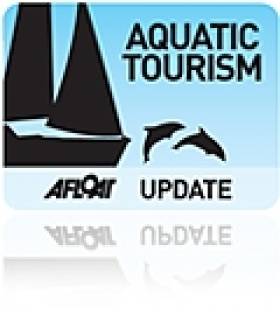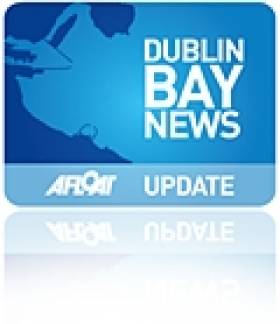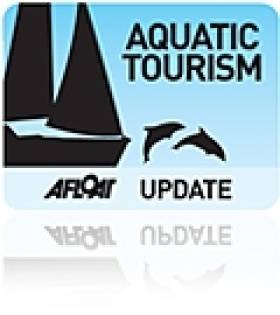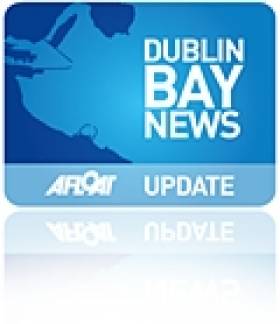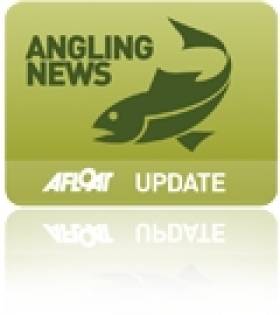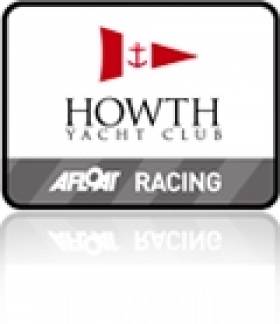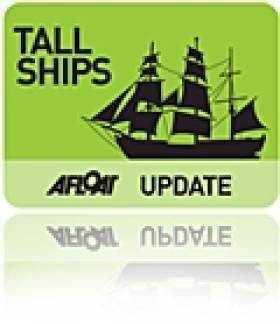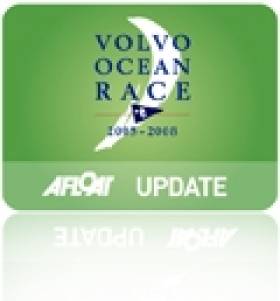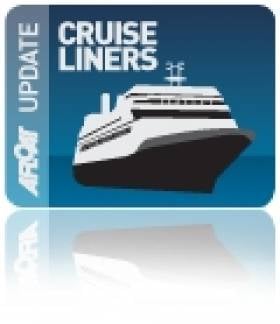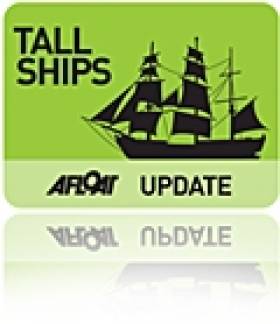Displaying items by tag: tourism
Entente Cordiale - Glenans Ireland Reunites with France
After a quarter of a century, Glenans Irish Sailing Club has been reunited with its French parent association, writes Bryan Dobson.
Well known to generations of Irish dinghy and keel boat sailors, the Glénans sail training bases at Baltimore, Co Cork, and Collanmore Island in Clew Bay, Co Mayo, are reopening this season under new French/Irish management. The merger of Glenans Irish Sailing Club (GISC) with Les Glénans of France, prompted by financial difficulties in the Irish club, was approved by the two organisations last November, securing the future of the Irish bases which now becomes Les Glénans newest secteur.
The Irish operation, founded by the French in the 1960s but independent since the 1980s, will form part of an association which trains some 14,000 people each year, making it Europe's largest sail training organisation.
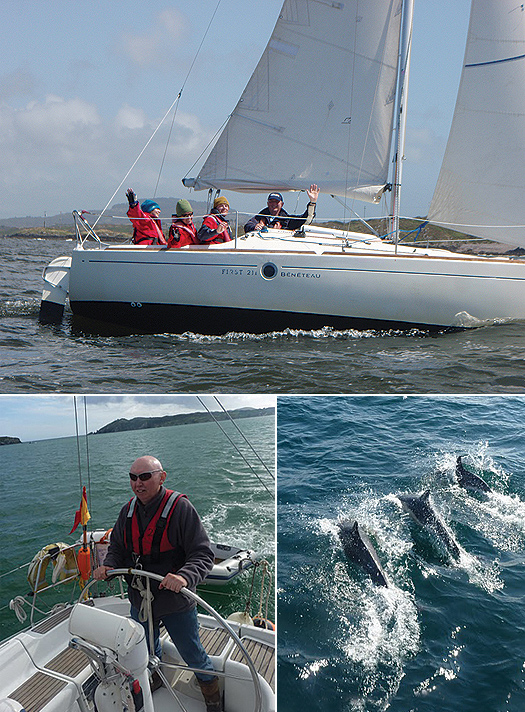
"It enables GISC to become part of a financially sound organisation with the same ethos," said Emma Sweeney, who was recently elected President of the Irish secteur committee. She and the 11 other committee members will assist in the running of the Irish bases, working with the French-appointed chef de base, Tom Daune.
Daune, who was an assistant chef de base for Les Glénans at île d'Arz in the Morbihan in Brittany since 2006, says they will "continue to refresh the fleets and buildings on the two bases" and "develop more cruising activity in Baltimore", as well as looking at the introduction of windsurfing in Collanmore.
Les Glénans has already demonstrated its commitment to the Irish secteur with new boats and equipment in place for the coming sailing season. The base at Collanmore in Clew Bay has taken delivery of 18 new catamarans. In Baltimore, the fleet of specially-designed Les Glénans 570 keel boats has been overhauled and added to, with each named after one of the seven deadly sins! The Glénans moorings at Baltimore have also been extended to accommodate two newly-delivered Sunfast 32s, which will be available for sailing courses in the magnificent cruising grounds of West Cork along with club's Sunfast 37 Sherkin ll.
Tom Daune says they "hope to have some strong links between Irish and French members....to permit them to sail together and to build a common knowledge. The courses are all bilingual. The main language is English, and French will be present too. So we have to develop our franglais."
"They're just mesmerised by the Irish coast," said Emma Sweeney of the French sailors from Les Glénans that she has met. She believes the merger will result in "significantly larger numbers of people coming to Ireland to sail in Baltimore and Collanmore".
And for the first time, Ireland will have a voice at the top table in Les Glénans with the election of Sinead MacAleese to the governing board of the organisation, the Conseil d'Administration. At the association's recent AGM, she topped the poll, out of 13 candidates, to secure one of only four vacancies on the Conseil.
A member of GISC for the last ten year and now based in Prague in the Czech Republic, Sinead has lived and worked in France for the last 12 years. She was one of the team that helped negotiate the merger of the two organisations, a development which she describes as "a great opportunity for the club to grow on two fronts".
Firstly, she believes there is an opportunity to deepen the ethos of Les Glénans, which is based on sailing without borders, on friendship and on volunteerism. "Volunteering is very important, a real core value," she said. And then there is the international dimension to the merger. "This is an opportunity for France to grow internationally." Les Glénans has a number of bases in Italy but Ireland is its first fully non-French secteur. And it means Les Glénans can offer Englis-speaking sailing courses to French and other non-Irish trainees in Ireland."They are very keen on developing English speaking courses," said Paul Rossiter, who was chairman of GISC in the run-up to the merger. A key member of the Irish negotiating team, he says the French association wanted to "spread their wings" as well as "insure that Glénans activities continued in Ireland".
Tom Daune believes it will be "very exciting for French, Belgian, Italian or Spanish members to sail in Ireland with Les Glénans. It's a new sailing area with an amazing landscape...and it's a fabulous place to learn more."
Les Glénans will be running courses at Baltimore and Collanmore from April through to October, for both adults and teenagers.
And according to Tom Daune, they can expect a unique experience: "Glénans arises from the dream of a more brotherly society and from a passion for the sea...Glénans is a sailing school, a sea school and a school of life."
For Les Glénans bookings see www.glenans.ie or phone 0033 153938600 (dial 1 and 1)
Dun Laoghaire Sailing Clubs Say Future is in Leisure
Dun Laoghaire's future lies in tourism and leisure, according to a submission on the new 'master plan' for the busy harbour.
The Irish Times reports that the town's top sailing and yacht clubs, who have come together under the banner of Dun Laoghaire Combined Clubs, are putting aside their individual interests "in favour of a larger and longer-term vision for the harbour".
The clubs' submission urges a rethink on public access to both the shore and water sides of the harbour. Inprovements in linking the town with the harbour area are already a goal of the master plan.
"Properly developed with a marine tourism and leisure focus [Dun Laoghaire] can generate new and sustainable sources of income." they said.
Dun Laoghaire Combined Clubs comprises the 'big four' waterfront clubs - the National, Royal Irish, Royal St George and Dun Laoghaire Motor Yacht Club - as well as the Dublin Bay Sailing Club and the Royal Alfred Yacht Club.
The Irish Times has more on the story HERE.
Seaweed Experience in West Cork
Seaweed picking is just one example of many 'green' tourism breaks now available in Ireland, according to The Irish Times.
Inchydoney Island Lodge and Spa in West Cork offers a two-night 'seaweed experience' for those looking for a more responsible, activity-based weekend away.
Aside from the typical spa treatments such as seaweed baths, local experts will take visitors seaweed foraging by kayak, while also educating about the area's natural beauty and abundant marine life.
Seaweed was once a staple of the Irish diet, and this break aims at a revival of the versatile superfood by showing how it can be used in a variety of dishes.
The Irish Times has more on the story HERE.
Ambitious Project Floated for Dun Laoghaire Harbour
Top British architects have won the commission to develop an ambitious master plan for Dun Laoghaire Harbour.
The Dun Laoghaire Gazette reports that Metropolitan Workshop have been tasked examining the feasibility of redeveloping the port to attract cruise liners carrying 100,000 passengers annually.
The plan, to be completed by the summer, is aimed at realising Dun Laoghaire's potential "as a major marine, leisure and tourism destination".
Improved public spaces linking the town and the harbour, tourism opportunities and new cultural attractions are just some of the proposals that the plan will take into consideration.
Jonny McKenna of Metropolitan Workshop old the Gazette: "Our approach is anchored in Dun Laoghaire's history and heritage. Our aim is to broaden the appeal of the harbour, both locally and internationally, as a world-class waterfront destination."
The consultation and drafting phase of the master plan will be completed by the end of this month.
Irish Bass Group Chair Gives Praise to 'Wolf of the Sea'
The chairman of the Irish Bass Group gave his praise to the fish described as the 'wolf of the sea' at a recent angling awards day.
John Quinlan told his audience at the Irish Specimen Fish Committee awards that Ireland has "something truly unique" in a marine fish that is reserved for recreational angling.
He also noted that "in spite of 21 years of bass protection, we have never felt secure enough to build the type of industry that this unique opportunity should justify."
Quinlan explained how bass play "a vital role" in the biodiversity of our inland waters, highlighting the interdependence between bass and sea birds.
“There are still magic days to be had bass fishing," he said, adding his belief that "anglers have a right to be involved in the management of our bass stocks".
He continued: "We have looked after them very well over the last 21 years and earned the right to be involved in any decisions about how they should be managed in the future. If we are to be successful we need to be taken more seriously by our Government."
Quinlan pointed to the potential benefits of angling tourism, an area that "has been lacking for far too long".
“The French call bass ‘loupe de mer’ or ‘the wolf of the sea’," he added. "These beautiful fish have hunted in our waters for centuries and I hope they continue to do so for many years to come.”
The Irish Times has more on the story HERE.
Howth Yacht Club Launches 2011 Sailing Programme
Howth Yacht Club will launch its programme of open sailing events for 2011 at the club house tomorrow evening (Thursday 31 March).
In addition to running club sailing throughout the year, and both junior and adult sailing courses to get more involved in the sport, HYC will also be hosting more than 20 open events this year.
These are set to include local, provincial, national and international championships, which are hopes to attract visitors from all over Ireland and beyond.
For more details visit the Howth Yacht Club website at www.hyc.ie.
Dubin's Lord Mayor opened a Tall Ship and Youth Sail Training Workshop with an agenda to seek a solution to the current Irish Sail Training impasse caused by the loss of sailing's Asgard II and Lord Rank.
Over 70 delegtes including many of the 'top brass' of the Irish Tall Ship commuunity attended the meeting held at the offices of Dublin Port Company on Saturday (26th March). The meeting inlcuded members of Coiste an Asgard, port companies, education, tourism and other sailing interests.
The meeting was formally opened by Dublin Lord Mayor and Port Admiral, Gerry Breen who introduced the chairman Lord Glentoran and the Facilitator Michael Counahan.
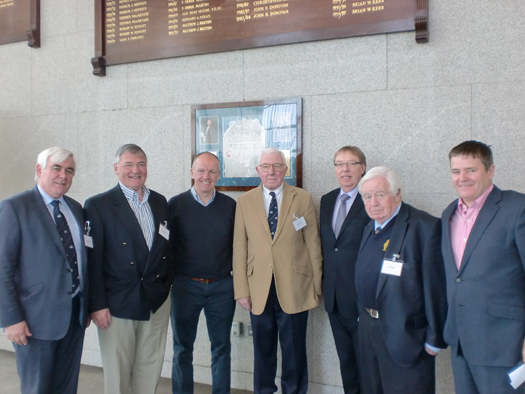
From (Left to right) Seamus McLoughlin, Dublin Port Head of Operations, Enda Connellan, Chairman Tall Ships Dublin 2012, Des Whelan, Chair Tall Ships Waterford 2011, Lord Glentoran (Robin Dixon) Chair Tall Ships Belfast 1992, Dr. Gerard O'Hare, Chair Tall Ships Belfast 2009, Ted Crosbie, Tall Ships Cork and Enda O'Coineen, LetsdoitGlobal.
Des Whelan gave an excellent talk and presentation on Tall Ships Waterford which was followed by a discussion on the massive economic benefits of bringing Tall Ships Festivals To Dublin, Cork and Belfast. Chairman of Tall Ships Dublin 2012 Enda Connellan and Ted Crosbie of Tall Ships Cork and Dr. Gerard O' Hare of Tall Ships Belfast discussed the incredible success stories from their respective ports festivals.
Several presentations and discussions followed regarding the role of Tall Ships in Sail Training, the connection between a vessel for Ireland and running events here. The question of who are the stakeholders and how can benefits be quantified was also discussed.
The meeting was hosted by Dublin Port Company who provided a warm welcome, excellent facilities, refreshments and a wonderful lunch with senior management attending to everyone's needs.
After lunch there were further discussions on what is the most suitable vessel, who should run the organisation and what would work best for Ireland.
Jimmy Tyrrell gave a short, eloquent and emotional account of Asgard II and the realisation of his father's dream which was fulfilled beyond all expectation by that legendary vessel and those who were privileged to sail on her. He affirmed his own belief that the way forward was with an All-Ireland Tall Ship and even suggested that she be called Spirit of Ireland. There were other suggestions for a name inlcuding 'Ireland's Call'.
A view was also expressed that politics and religion have no place in Sail Trail Training and the future lay in an All-Ireland Commercial/Charitable Trust Venture.
The prohibitive nature of current legislation and the total lack of awareness of the maritime sector by the Government was mentioned several times.
Ocean Youth Club NI provided four young sail trainees to address the gathering on the benefits of Sail Training from their perspective and representatives from education, tourism Tall Ships International and "Association Of Tall Ships Organisations" also contributed.
The general consensus was the need to develop and promote, as a matter of urgency, a plan for a Tall Ship For Ireland linking Youth, Maritime Education, Business and Tourism.
Another workshop will be held in Belfast in April and the collective input of both meetings will be considered going forward.
A Tall Order for Ireland? HERE
Regular updates on Irish Tall Ship sailing news HERE
More on Asgard II HERE
Crucial Stage for Volvo Ocean Race Sponsorship Talks
Negotiations to land €11 million in sponsorship for the finals of the Volvo Ocean Race in Galway next summer are at a 'delicate stage', the Galway City Tribune reports.
Six teams have so far been confirmed for the world's biggest sailing event, and Irish organisers are in talks with a number of potential overseas sponsors.
“We are at a delicate stage in negotiations in relation to a number of issues and plans are on track for a much bigger event this time around,” said John Killeen of Let’s Do It Global, a team that in its previous incarnation had Chinese sponsorship for its 2009 entry in the race.
The Volvo Ocean Race is set to attract more than half a million visitors, with close to 50,000 corporate guests, and is expected to bring in €80 million for the local ecomony in Galway.
The Galway City Tribune has more on the story HERE.
Cruise Line Business Worth €60m
There are many indirect economic and tourism benefits to Ireland from this sector, as well as the benefit of introducing Ireland to new markets and business opportunities. Such cruise visits also help to showcase Ireland's world class shore products, destinations and highlights all that Ireland has to offer visitors.
One of Ireland's advantages is the strategic and geographic spread of its numerous ports, many of which are in close proximity to world class tourism destinations.
Speaking at Seatrade Miami this week, the Chairman of Cruise Ireland, Mr Brendan Keating said "Cruise Ireland aims to promote the island of Ireland as an excellent cruising ground for cruise companies. With the total economic contribution of €60 million, we need to ensure that Ireland maintains this level of business and looks at methods of growing it in the future."
He continued; "Cruise Ireland is looking forward to the 2011 season with confidence. We expect to see further growth in ship calls and the continued establishment of Ireland as an important cruise liner destination. Marketing Cruise Ireland at Seatrade will hopefully encourage further cruise bookings to Ireland in 2012 and 2013."
Representatives from Cruise Ireland attended Seatrade Miami to promote the Island of Ireland as a cruise line tourism destination. This event is attended by over 10,000 delegates, cruise line operators, the world's leading cruise tourism destinations and 118 countries.
Each year, all of the international operators including Princess Cruises, Royal Caribbean, Cunard, Holland America Line and NCL visit Irish ports to access Ireland's world class destinations.
The 2011 season will kick off in early April with calls by the MV Queen Victoria to Cork, the MV Boudicca to Dublin and the MV Ocean Nova to Belfast
Tall Order for Ireland
Sailing in Ireland could yet have a tall ship to replace the Asgard II and the Lord Rank. A meeting in Dublin in late March represents a major step forward in the process to put an Irish tall ship back on the high seas.
The open workshop, to be held on March 26th, will be facilitated by Dublin Port, and will include state interests, tourism interests, commercial port interests, youth organisations, maritime organisations and education groups, together with the former Lord Rank and Asgard II operators.
The catalyst for the initiative is a 'reference group' which represents a broad cross-section of interests, both North and South. Operating under the chairmanship of Lord Glentoran, and supported by Dr Gerard O'Hare, David Beattie and Enda O'Coineen, the group has also engaged a professional consulting firm to move the process along.
The initial focus is on the necessary organisation and rationale behind building a new vessel, while scientifically quantifying the benefits to build a plan and justification.
The view taken is that, while there may be no money available at this time, there is no excuse for not having a plan and the idea is to create ' joined-up' thinking. And while the government in the South placed the insurance money paid out on Asgard II back into general exchequer funds, the insurance payment on the Lord Rank was kept and ' ring-fenced' for this new initiative.
To date, there have been several meetings of the reference group. The planned workshop on the subject at Dublin Port March 26 is open and interested parties are invited to contribute. It will also bring together for the first time the leaders of Tallships in Dublin, Belfast, Waterford and Cork.
Ultimately Tall Ships is about youth training and development; without an active Tall Ship, it will be very difficult for Ireland to attract Tall Ship events. The new reference group will work to support the new Sail Training Ireland Association initiative, and link in with Sail Training International which runs Tall Ship events.
Following the Dublin workshop, Belfast Harbour Commissioners will host a working meeting of the group in early May to finalise a plan, present to stakeholders and create a roadmap forward.
"In addition to youth training, a working Tall Ship forms a brilliant ambassadorial role promoting tourism, enterprise and commercial interests," said Lord Glentoran. "It is something that we can all relate to and it has universal acceptance for youth training on an island of Ireland basis." Lord Glentoran has a long commitment to youth sail training and was Chairman of the organising committee that brought the Tall Ships to Belfast in 1991.
The reference group is seeking to engage with as many stakeholders as possible, and has pledged that the new vessel will be owned by the community in Ireland and the Irish Diaspora. The initial view is that the project clearly needs to be linked with the institutions of State - North and South - as are universities state agencies and ports, while at the same time having a strong private support network making for a mix of public and private funding, "We now have a brilliant opportunity to look around the world, establish best practice in the best kind of vessel, how to fund it and to quantify the benefits for each of the stakeholder group," said Enda O'Coineen, who has been instrumental in bringing the group together. In addition to being a former Coiste and Asgard Director, he is the founding Chairman of Let's Do It Global, which brought the Volvo Ocean Race to Galway and successfully raced the Green Dragon around the world.
O'Coineen added that a "world class solution" can be created and that its benefits can be financially quantified, which would allow supporters to make a compelling business case to divert and use existing funds in Tourism, Enterprise and Youth Training. "While there is no money available now to support the scale and professionalism needed, this is not an excuse not to have a plan and a vision," he added.
Since the loss of the Asgard II and Lord Rank, Ireland has been left with no sail training opportunities for young people and likewise for maritime development, enterprise and tourism. If nothing is done, future generations will suffer. The reference group believes that the solution is the construction of an Ireland - North and South - training vessel, fulfilling several roles with a common mission and resourced according to quantifiable benefits delivered to stakeholders. It is also open to the use of an existing vessel - a key component being suitability and the operations budget.
The proposed Tall Ship project will enhance skills and opportunities for young people across the island, regardless of background, class or education. It could be used to showcase Ireland as a brand at overseas events and it could also host international students who wish to come to the island of Ireland, as is the case with many of the International Tall Ships Programmes already running on a global scale which create a huge amount of tourism for their respective countries.
The reference group notes that the Tall Ships concept appeals to young and old alike as the romanticism behind the concept touches on history, social studies, legacy, family, travel, adventure and, most importantly, fun. Tall Ships allow people to dream. They do however have an underlying seriousness and the concept is grounded in methodology that has been tested and proven the world over.
An advertisement in March/April of Afloat magazine - out now - gives full detials of the 'Tall Ship for Ireland' Workshop
Should Ireland be represented at the Tall Ships Races at Waterford 2011 and Dublin 2012? We want your vote on our Facebook Poll HERE.
Looking for further reading on Tall Ships in Ireland? Click the links below:
Click this link to read all our Tall Ships Stories on one handy page
Previewing Ireland's Tall Ships 2011 Season



























